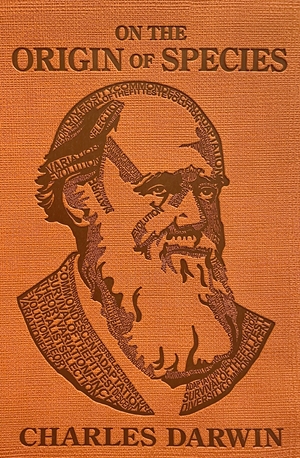With a new lush and lovely edition of On the Origin of Species available now from Canterbury Classics, it’s a good time to look at the life, work, and legacy of Charles Darwin, a towering figure of science and history for espousing the theory of evolution. He’s so iconic that multiple major mistruths persist about him more than a century later. Here’s the truth about Darwin.
On the Origin of Species didn’t make Darwin an overnight sensation.
It’s widely perceived that with the release of his then-radical text On the Origin of Species in 1859, in which Darwin suggests and presents scientific backup of the theory of evolution, that the author became an instant celebrity, a sudden star in the world of science and the public at large, if not a controversial lightning rod, too. Darwin was well established in the field of naturalism by the time On the Origin of Species was published. That’s why many prominent periodicals reviewed the book, and how it sold out its first print run in just one day.
Buy This Book!
Darwin didn’t come up with the theory of evolution.
He wasn’t the first scientist to propose the idea that lifeforms evolve from other lifeforms; he just wrote about it the most effectively, in a clear and revelatory way, and at a crucial moment in history. Darwin’s theory of evolution falls under the purview of evolutionary biology, a topic first written about in the 7th century B.C. and introduced in the modern age in the early 1800s by scientist Jean-Baptiste Lamarck. Lamarck and others theorized that one creature evolved into another, while Darwin suggested that evolution worked in a branching system. (See below.)
Darwin didn’t say that humans descended from monkeys.
Giving rise to the contemporary “evolution vs. intelligent design” debate over the origins of human beings, Charles Darwin purportedly once wrote that humans evolved out of monkeys or apes — making for a logical fallacy in that monkeys still exist. In his 1871 book The Descent of Man and Selection in Relation to Sex, Darwin actually said that he thought all animals and plants derived from a singular, ancient lifeform. And from there, Darwin theorized, a primate evolved, which then descended into two separate primate classes: apes, and human beings.
“Survival of the fittest” is Darwin’s own encapsulation of this ideas about evolution.
While the idea of the strongest traits helping a lifeform survive and pass along those qualities as they evolve, it’s not the entirely of Darwin’s argument, nor is it even a phrase he coined. Scientist Herbert Spencer created it for his textbook Principles of Biology, which was published two years after On the Origin of Species and spends a lot of ink discussing the content of Darwin’s landmark work. “This survival of the fittest, which I have here sought to express in mechanical terms, is that which Mr Darwin has called natural selection,” Spencer wrote.
On the Origin of Species by Charles Darwin is available now from Canterbury Classics.









